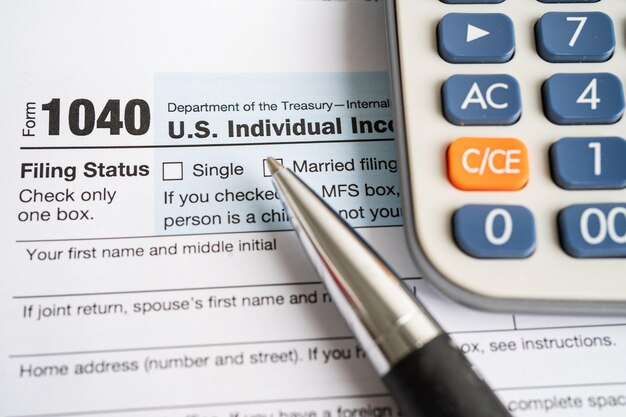Understanding Massachusetts Sales Tax: What You Need to Know in 2023
Navigating the world of taxes can be overwhelming, especially when you're trying to figure out how much you owe on everyday purchases. One of the most frequently asked questions by Massachusetts residents and visitors alike concerns the state's sales tax. In this guide, we'll dive deep into what Massachusetts sales tax is, how it works, its implications on various sectors, and practical advice for both consumers and businesses. Whether you're a local resident or a business owner, this article aims to clarify the ins and outs of sales tax in Massachusetts.
🌟 What Is Massachusetts Sales Tax?
Sales tax in Massachusetts is a consumption tax imposed on the sale of goods and certain services within the state. As of 2023, Massachusetts imposes a sales tax rate of 6.25%. This means that for every dollar spent on taxable goods and services, an additional 6.25 cents is added as sales tax. This tax is collected by retailers at the point of sale and remitted to the state's Department of Revenue.
Key Aspects of Massachusetts Sales Tax
- General Rate: The general sales tax rate in Massachusetts is 6.25%.
- Scope: It applies to the retail sale of tangible personal property and a limited number of services.
- Collection and Remittance: Retailers are responsible for collecting sales tax and remitting it to the state.
📚 Understanding Exemptions and Specifics
Not all goods and services are subject to the standard sales tax. There are specific exemptions and unique considerations to keep in mind.
Food and Clothing
- Food Products: Most food items purchased for at-home consumption are exempt from sales tax. However, meals purchased at restaurants or ready-to-eat foods, regardless of where they are purchased, are generally taxable.
- Clothing: Clothing purchases up to $175 per item are exempt. If an item exceeds $175, only the amount over this threshold is taxed.
Other Exemptions
- Medical Supplies: Prescription drugs and certain medical devices are typically not subject to sales tax.
- Educational Materials: Books and educational materials may be exempt, depending on their use.
🏢 Sales Tax for Businesses
For businesses operating in Massachusetts, understanding sales tax is crucial for compliance and cost management.
Registering and Filing
Businesses must register with the Massachusetts Department of Revenue to collect sales tax. They are also required to file regular sales tax returns to report and remit the taxes collected.
Use Tax
Massachusetts also imposes a use tax on items purchased outside the state but used, stored, or consumed within the state. This is particularly relevant for online purchases and is designed to level the playing field between local brick-and-mortar businesses and out-of-state sellers.
Economic Nexus
Online sellers with a significant presence or sales volume in Massachusetts may be subject to sales tax collection under the concept of economic nexus. Businesses should evaluate their sales activities to determine nexus obligations.
🔄 Adjustments and Changes
Sales tax laws can evolve, with adjustments made to rates or applicability. For instance, Massachusetts occasionally conducts a Sales Tax Holiday, where certain days are designated as tax-free for selected items, encouraging consumer spending.
📝 Keeping Updated
- Department of Revenue Notifications: Regularly check announcements from the Massachusetts Department of Revenue for updates or changes to the sales tax laws.
💼 Tips for Consumers and Businesses
Navigating sales tax doesn't have to be daunting. Here are some practical tips:
For Consumers
- Budget Accordingly: Keep the 6.25% tax rate in mind when budgeting for purchases.
- Look for Exemptions: Take advantage of tax-free holidays and know which goods are exempt.
For Businesses
- Regular Audits: Conduct regular reviews of your sales processes to ensure compliance with tax laws.
- Software Solutions: Consider utilizing sales tax software to accurately calculate and remit taxes.
📈 Future Considerations
With the advent of online shopping and economic changes, the landscape of sales tax continues to shift. It's possible that new laws covering digital goods and services could emerge, impacting both businesses and consumers.
The Influence of E-commerce
- Digital Goods and Services: More states, including Massachusetts, are looking at ways to tax digital services and products due to the influence of digital transformation on consumer behavior.
🎯 Key Takeaways and Highlights
- Sales Tax Rate: The Massachusetts sales tax rate is 6.25%.
- Exemptions: Notable exemptions include most clothing and at-home food purchases.
- Business Requirements: Businesses must register, collect, and remit sales taxes.
- Consumer Awareness: Awareness of sales tax exemptions and holidays can lead to savings.
💡 Summary Points
- 📈 General Rate: 6.25% on most goods.
- 👗 Clothing Exemption: Up to $175 per item.
- 🍏 Food: Exempt for at-home consumption.
- 💊 Medical: Many prescriptions and devices exempt.
- 🛒 Online and Use Tax: Critical for digital purchases and out-of-state buys.
- 📅 Sales Tax Holidays: Annual events offering strategic shopping opportunities.
Understanding the framework of Massachusetts sales tax empowers consumers to make informed decisions and helps businesses maintain compliance. By keeping abreast of changes and leveraging strategic buying patterns, everyone can manage their tax obligations more effectively.

Related Topics
- a Sales Tax Is a Type Of
- Can I Deduct Vehicle Sales Tax On My Federal Return
- Do Gross Sales Include Sales Tax
- Do I Need To Collect Sales Tax For Selling Online
- Do You Pay Sales Tax At The Dealership Or Dmv
- Do You Pay Sales Tax On a House
- Do You Pay Sales Tax On Groceries In Washington State
- Do You Pay Sales Tax When You Buy a House
- Does Alaska Have a Sales Tax
- Does Alaska Have Sales Tax
